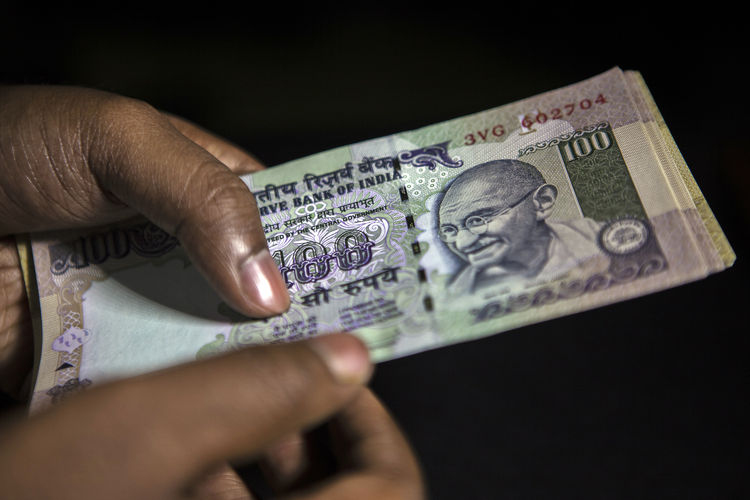The Indian rupee found itself on a downward spiral on Tuesday as it plummeted to a historic low against the US dollar amidst regional economic turbulence.
The currency dropped by as much as 0.1% to 83.5350 per dollar, breaching its previous intraday low of 83.50 set in November, according to data compiled by Bloomberg.
Simultaneously, Indian stocks followed suit with the S&P BSE Sensex Index trading down by 0.5%.
A cocktail of factors contributed to the somber mood pervading regional markets. Notably, a drop in the value of the yuan, prompted by China’s unexpected decision to weaken its currency defense, added to the prevailing risk-off sentiment.
Also, simmering tensions in the Middle East raised fears of potential disruptions in oil supply, further exacerbating concerns.
Given that crude oil constitutes India’s largest import, the prospect of costlier oil poses a significant risk to the economy, particularly in the run-up to national elections.
Traders reacted swiftly to the weakening rupee, speculating that the Reserve Bank of India (RBI) may utilize its substantial foreign exchange reserves to intervene in the market and curb volatility.
Despite the rupee’s decline, it stood out as one of the better-performing emerging market currencies on Tuesday, experiencing a milder depreciation compared to counterparts like Indonesia’s rupiah and the South Korean won.
Kunal Sodhani, Vice President at Shinhan Bank, commented on the situation, stating, “Considering India’s FX reserves at an all-time high, the RBI may use this ammunition to curtail any kind of excessive volatility.”
He pointed to various factors, including the weakening of the Chinese yuan, the strengthening of the dollar index, and outflows from domestic equities, as exerting pressure on the Indian rupee.
While the rupee’s downward trajectory underscores the challenges facing India’s economy amidst regional uncertainties, the presence of robust foreign exchange reserves offers a glimmer of hope for stability.
However, as geopolitical tensions persist and global economic dynamics evolve, policymakers and market participants alike are bracing themselves for continued volatility, navigating the uncertain terrain of the international financial landscape with caution.

 Forex1 week ago
Forex1 week ago
 Naira4 weeks ago
Naira4 weeks ago


 Naira1 week ago
Naira1 week ago
 Company News4 weeks ago
Company News4 weeks ago




 Naira1 week ago
Naira1 week ago




 Naira3 weeks ago
Naira3 weeks ago
 Billionaire Watch6 days ago
Billionaire Watch6 days ago




 Naira5 days ago
Naira5 days ago






















